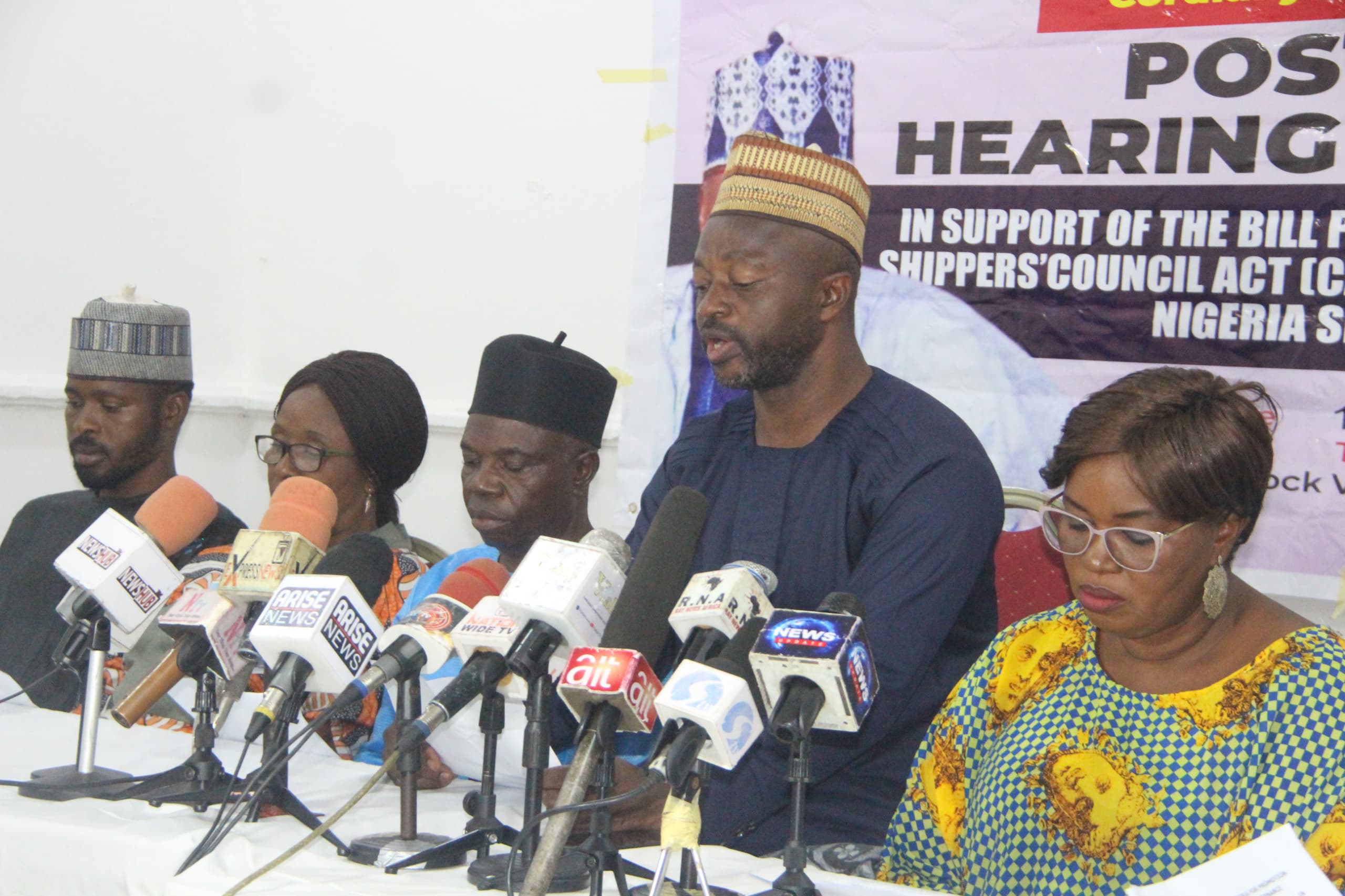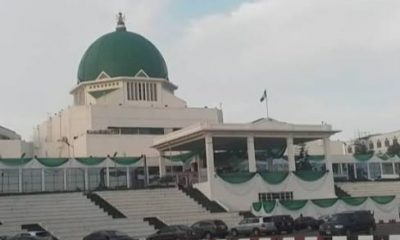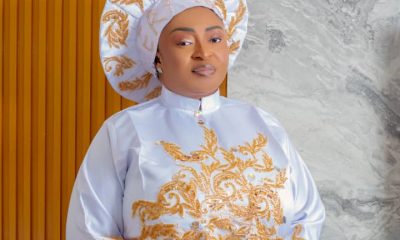society
CSOs back Shippers Council Regulatory Bill

CSOs back Shippers Council Regulatory Bill
A group of 45 civil society groups under the auspices of the Coalition of Civil Society Groups in Nigeria for Promotion of Accountability and Transparency in Governance (CCSGNPATG) have thrown their weight behind the proposed Nigeria Shippers Council regulatory agency.
Recall that the Bill for an Act to Repeal the Nigeria Shippers’ Council Act and enact the Shipping and Port Economic Regulatory Agency Bill and Related Matter passed second reading in the House of Representatives.
This crucial legislation aims to empower the Nigerian Shippers Council to effectively regulate the shipping industry, protect the interests of shippers, and promote economic growth.
Speaking on behalf of the groups at a press conference on Monday, Patriot Nwogu Ndubisi hailed the
Committee on Shipping Services for its inclusivity, giving stakeholders the platform to make inputs to the bill at a public hearing.
He said the bill will bring much-needed transparency, accountability, and efficiency to the sector while strengthening the Shippers Council’s regulatory powers, reduce costs, increase competition, and improve service delivery.
He, therefore, said that the passage of this bill will have a positive impact on the Nigerian economy and the lives of citizens.
“Our coalition is pleased to note that 99% of the opinions expressed at the public hearing were in favour of the Bill as presented,” Ndubisi added.
“We also note that a few amendments were suggested, which the House Committee on Shipping Services, ably led by Honourable Abdulsamad Dansuki, has promised to take notice of. Such an accommodating disposition is what the electorates expect of our lawmakers, and we look forward to the House sustaining this trend.
“We want to specifically commend the Speaker of the House of Representatives of the Federal Republic of Nigeria, the Rt. Hon. Tajudden Abbas for the speedy consideration of the Bill by the People’s House under his leadership.
“This is even as we use this opportunity to appeal to the Right Honourable Speaker to help sustain this tempo given the significance of this bill and its importance to the national economy and the positive impact it would have on the lives of citizens.
“We, therefore, plead with Senate President Godswill Akpabio that Nigerians are eager to see the Senate replicate the pace the House has adopted in treating the Bill.
“We are of the view that such accelerated handling of the Shipping Council Regulatory Bill aligns with the Senate President’s avowal to tackle inflation, economic hardship, and difficulties that Nigerians are facing. We look forward to commending the Senate for the manner it will treat the bill when it comes to the Red Chamber for concurrence.
“Our final appeal goes to the President and Commander-in-Chief of the Federal Republic of Nigeria, His Excellency Asiwaju Bola Ahmed Tinubu, for his speedy assent when the Bill is transmitted to the Presidency. With the passion he has shown for rebooting Nigeria’s economy to its optimum, we do not doubt that Mr President will greet the Shipping Council Regulatory Bill with the same urgency with which the Students Loan Bill was greeted to become an Act.
“Meanwhile, we laud the Honourable Minister of Marine and Blue Economy, Adegboyega Oyetola for getting it right with the Shipping Council Regulatory Bill. The support he has mobilised so far shows his level of transparency and zeal to regulate the maritime economy. Posterity will be kind to him and all his subordinates who made the progress of the Bill a reality.
“To our compatriots, Nigerians, we ask that as stakeholders we continue to collectively support our lawmakers in the National Assembly to make the eventual delivery of a ‘Shipping Council Regulatory Act’ a reality.“
society
Ramadan: Adron Homes Felicitates Muslims, Preaches Hope and Unity

Ramadan: Adron Homes Felicitates Muslims, Preaches Hope and Unity
Adron Homes & Properties Limited has congratulated Muslim faithful on the commencement of the holy month of Ramadan, urging Nigerians to embrace the virtues of sacrifice, discipline, and compassion that define the season.
In a statement made available to journalists, the company described Ramadan as a period of deep reflection, spiritual renewal, and strengthened devotion to faith and humanity.
According to the management, the holy month represents values that align with the organisation’s commitment to integrity, resilience, and community development.
“Ramadan is a time that teaches patience, generosity, and selflessness. As our Muslim customers and partners begin the fast, we pray that their sacrifices are accepted and that the season brings peace, joy, and renewed hope to their homes and the nation at large,” the statement read.
The firm reaffirmed its dedication to providing affordable and accessible housing solutions to Nigerians, noting that building homes goes beyond structures to creating environments where families can thrive.
Adron Homes further urged citizens to use the period to pray for national unity, economic stability, and sustainable growth.
It wished all Muslim faithful a spiritually fulfilling Ramadan.
Ramadan Mubarak.
society
Underfunding National Security: Envelope Budgeting Fails Nigeria’s Defence By George Omagbemi Sylvester

Underfunding National Security: Envelope Budgeting Fails Nigeria’s Defence
By George Omagbemi Sylvester | Published by saharaweeklyng.com
“Fiscal Rigidity in a Time of Crisis: Lawmakers Say Fixed Budget Ceilings Are Crippling Nigeria’s Fight Against Insurgency, Banditry, and Organized Crime.”
Nigeria’s legislature has issued a stark warning: the envelope budgeting system; a fiscal model that caps spending for ministries, departments, and agencies (MDAs) is inadequate to meet the country’s escalating security challenges. Lawmakers and budget analysts argue that rigid fiscal ceilings are undermining the nation’s ability to confront insurgency, banditry, kidnapping, separatist violence, oil theft and maritime insecurity.
The warning emerged during the 2026 budget defence session for the Office of the National Security Adviser (ONSA) at the National Assembly in Abuja. Senator Yahaya Abdullahi (APC‑Kebbi North), chairman of the Senate Committee on National Security and Intelligence, decried the envelope system, noting that security agencies “have been subject to the vagaries of the envelope system rather than to genuine needs and requirements.” The committee highlighted non-release or partial release of capital funds from previous budgets, which has hindered procurement, intelligence and operational capacity.
Nigeria faces a multi‑front security crisis: persistent insurgency in the North‑East, banditry and kidnappings across the North‑West and North‑Central, separatist tensions in the South‑East, and piracy affecting Niger Delta oil production. Despite declarations of a national security emergency by President Bola Tinubu, lawmakers point to a “disconnect” between rhetoric and the actual fiscal support for agencies tasked with enforcement.
Experts warn that security operations demand flexibility and rapid resource allocation. Dr. Amina Bello, a public finance specialist, said: “A static budget in a dynamic threat environment is like sending firefighters with water jugs to a forest fire. You need flexibility, not fixed ceilings, to adapt to unforeseen developments.”
The Permanent Secretary of Special Services at ONSA, Mohammed Sanusi, detailed operational consequences: irregular overhead releases, unfulfilled capital appropriations, and constrained foreign service funds. These fiscal constraints have weakened intelligence and covert units, hampering surveillance, cyber‑security, counter‑terrorism and intelligence sharing.
Delayed capital releases have stalled critical projects, including infrastructure upgrades and surveillance systems. Professor Kolawole Adeyemi, a governance expert, emphasized that “budgeting for security must allow for rapid reallocation in response to threats that move faster than political cycles. Envelope budgeting lacks this essential flexibility.”
While the National Assembly advocates fiscal discipline, lawmakers stress that security funding requires strategic responsiveness. Speaker Abbas Ibrahim underscored that security deserves “prominent and sustained attention” in the 2026 budget, balancing oversight with operational needs.
In response, the Senate committee plans to pursue reforms, including collaboration with the executive to restructure funding, explore supplementary budgets and ensure predictable and sufficient resources for security agencies. Experts warn that without reform, criminal networks will exploit these gaps, eroding public trust.
As one policy analyst summarized: “A nation declares a security emergency; but if its budget does not follow with real resources and oversight, the emergency remains rhetorical.” Nigeria’s debate over envelope budgeting is more than an accounting dispute; it is a contest over the nation’s security priorities and its commitment to safeguarding citizens.
society
Rev. Mother Kehinde Osoba (Eritosin) Celebrates as She Marks Her Birthday

Rev. Mother Kehinde Osoba (Eritosin) Celebrates as She Marks Her Birthday
Today, the world and the body of Christ rise in celebration of a rare vessel of honour, Rev. Mother Kehinde Osoba, fondly known as Eritosin, as she marks her birthday.
Born a special child with a divine mark of grace, Rev. Mother Eritosin’s journey in God’s vineyard spans several decades of steadfast service, spiritual depth, and undeniable impact. Those who know her closely describe her as a prophetess with a heart of gold — a woman whose calling is not worn as a title, but lived daily through compassion, discipline, humility, and unwavering faith.
From her early days in ministry, she has touched lives across communities, offering spiritual guidance, prophetic insight, and motherly counsel. Many testify that through her prayers and teachings, they encountered God in a deeply personal and transformative way. Near and far, her influence continues to echo — not only within church walls, but in homes, families, and destinies reshaped through her mentorship.
A mother in every sense of the word, Rev. Mother Kehinde Osoba embodies nurture and correction in equal measure. As a grandmother, she remains energetic in purpose — accommodating the wayward, embracing the rejected, and holding firmly to the belief that no soul is beyond redemption. Her life’s mission has remained consistent: to lead many to Christ and guide them into the light of a new beginning.
Deeply rooted within the C&S Unification, she stands tall as a spiritual pillar in the Cherubim and Seraphim Church globally. Her dedication to holiness, unity, and prophetic service has earned her widespread respect as a spiritual matriarch whose voice carries both authority and humility.
As she celebrates another year today, tributes continue to pour in from spiritual sons and daughters, church leaders, and admirers who see in her a living reflection of grace in action.
Prayer for Rev. Mother Kehinde Osoba (Eritosin)
May the Almighty God, who called you from birth and anointed you for His service, continually strengthen you with divine health and renewed vigour.
May your oil never run dry, and may your prophetic mantle grow heavier with greater glory.
May the lives you have nurtured rise to call you blessed.
May your latter years be greater than the former, filled with peace, honour, and the visible rewards of your labour in God’s vineyard.
May heaven continually back your prayers, and may your light shine brighter across nations.
Happy Birthday to a true Mother in Israel — Rev. Mother Kehinde Osoba (Eritosin).
More years.
More anointing.
More impact.
If you want this adapted for a newspaper page, church bulletin, Facebook post, or birthday flyer, just tell me the format and tone.
-

 celebrity radar - gossips6 months ago
celebrity radar - gossips6 months agoWhy Babangida’s Hilltop Home Became Nigeria’s Political “Mecca”
-

 society6 months ago
society6 months agoPower is a Loan, Not a Possession: The Sacred Duty of Planting People
-

 society5 months ago
society5 months agoReligion: Africa’s Oldest Weapon of Enslavement and the Forgotten Truth
-

 news6 months ago
news6 months agoTHE APPOINTMENT OF WASIU AYINDE BY THE FEDERAL GOVERNMENT AS AN AMBASSADOR SOUNDS EMBARRASSING











